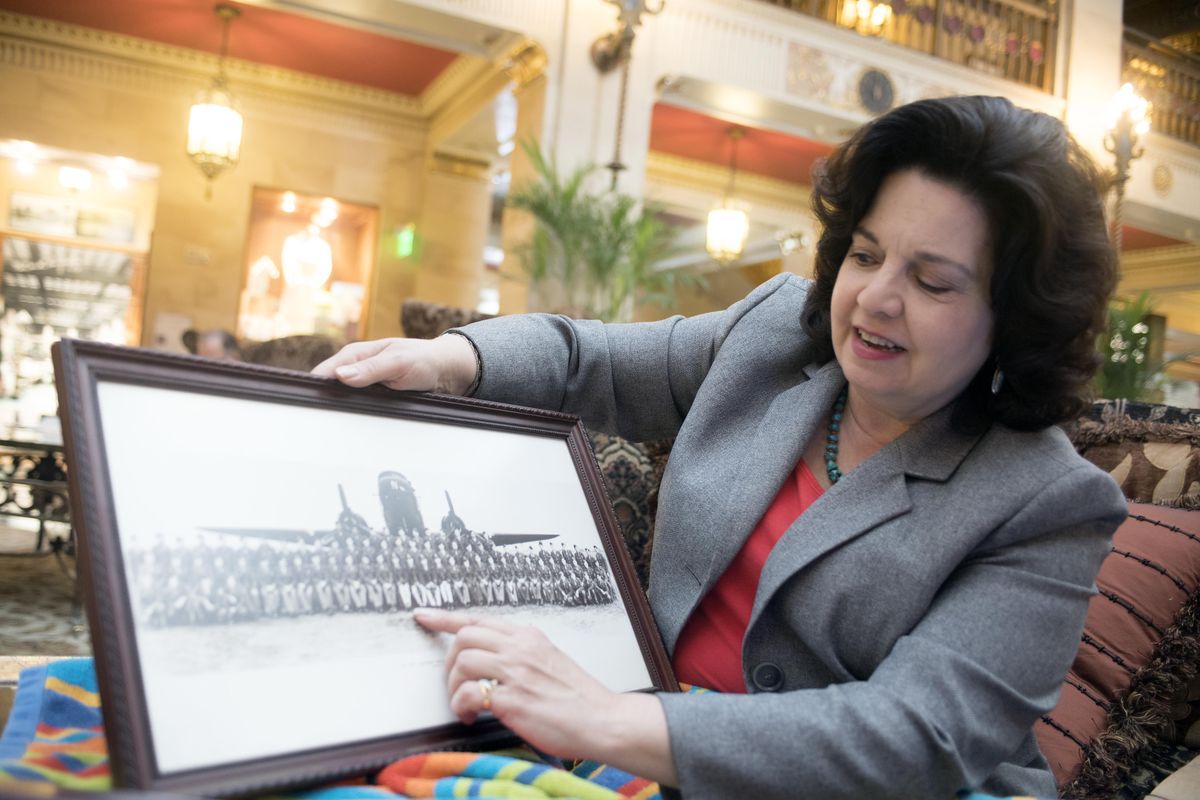Doug Clark on the passing of WWII vets: ‘What we really need is another Greatest Generation’

Another hero has vanished from the planet.
This time it was William Earl (Bill) Wheatley.
He was a lieutenant colonel when he retired from the U.S. Air Force in 1968.
Time and age caught up with the Spokane man last June 20. He was 98 years old.
I never met Wheatley. I heard about him the other day through one of his daughters, Martha Lou Wheatley-Billeter, whom I’ve known for years.
Martha Lou is a dispenser of information for Spokane County’s public works and environmental services department. We met back when she was a broadcast journalist for a number of Spokane radio stations.
The more Martha Lou told me about her dad, the more she made me think about disappearing heroes.
Take the World War I vets I used to occasionally interview when I started writing columns for The Spokesman-Review.
I remember being enthralled as I listened to the stories about young men being transported to Europe on ships, the horrors of mustard gas and trench warfare.
Then slowly they all disappeared.
The last American World War I vet, Frank Buckles, reportedly died in 2011 at the age of 110.
And now the World War II veterans are leaving us at a depressing rate.
The most current statistics I found show that out of 16 million who served, only 620,000 veterans remain.
Each passing day sees close to 400 more gone. Fewer than 18,000 veterans are left in Washington and Idaho.
Do the math. The tragic day is soon coming when, like Buckles, the last WWII warrior will disappear.
“It seems trite to say they’re heroes, but they really are,” Martha Lou said. “They gave it their all and then came back and rebuilt this country.”
The story of Bill Wheatley starts on a hardscrabble farm in a rural part of Arkansas.
Wheatley was one of 16 kids, and life was far removed from what it is now.
A trip to the bathroom meant just that: taking a walk outside to an outhouse. A typical day would see the young members of the family rising early to do their chores.
Wheatley and the others would head off to school, packing a cup of homemade peanut butter and a biscuit or two for lunch.
Back home they’d work the fields or maybe hunt or fish to supplement their supper.
Looking for a better life, Wheatley joined the U.S. Army Air Corps in 1937. His first post was a faraway place called Fort George Wright in Spokane. Here he met Phyllis, who would be his first wife until cancer would take her in 1974.
Wheatley was a captain by the time America entered the largest armed conflict ever seen, said Martha Lou.
Stationed “somewhere in England,” Wheatley was part of the massive air transport effort to resupply our forces following the Normandy invasion on June 6, 1944.
He joined numerous air missions, from England to France, to help deliver food, ammunition and medical supplies to the troops below.
“I remember him telling me how the men were sleeping in 30-minute shifts” to keep the supplies moving, she said, adding that he survived being shot down once. Everyone bailed out safely and made it back to the Allied lines.
“They were such dangerous missions. He saw what happened on the beaches,” she said. “He told me it was one of the most harrowing things he’d ever done.”
Martha Lou is lucky to have had her father around for so long. She’s also lucky that he told her about so many of his World War II experiences.
Many veterans stayed mum about what they did and the violence they saw. Some of them took the stories of their service all the way to the grave.
Martha Lou said her dad raised her in a “yes sir, no sir” environment. Even so, he “had a great sense of humor.”
Fairchild brought the Wheatleys to Spokane.
After retiring from the Air Force, he worked a number of jobs and even served as the postmaster of Chatteroy.
In 1978, he married a wonderful woman and mother, Edith.
One of the highlights of Wheatley’s life, besides being a compulsive Zags basketball fan, was joining a 2010 Honor Flight veterans trip to Washington D.C.
“He could not speak highly enough about it. He said they were chauffeured everywhere and moved to the front of lines,” she said.
Edith, added Martha Lou, actually filled out the application for him to go. “She wanted him to have the experience.”
A humble man, Wheatley never felt like he did anything so special. It’s a common trait among veterans. “They’re so unassuming and so modest and yet they did so much.”
So rest in peace, Bill Wheatley. And thanks for your service.
“People talk about making America great again,” Martha Lou said. “What we really need is another greatest generation.”